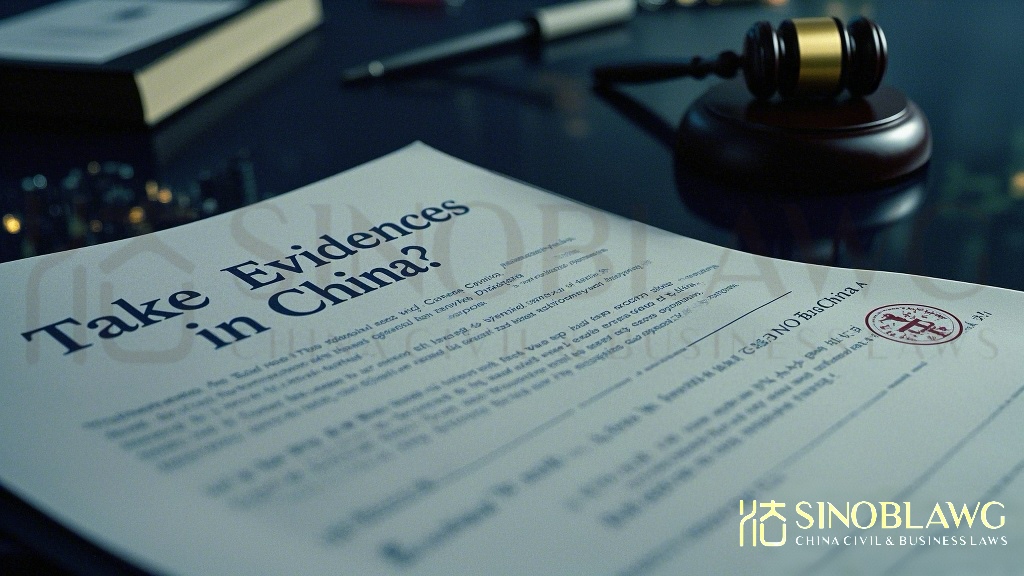
Very often as part of the international cooperation with foreign family or inheritance lawyers, we are asked to help with getting documents that may be admitted in foreign court proceedings as evidences. For example, they want us to help do a title search to find out the assets of one spouse to a divorce proceeding outside China.
Can it be done? And how?
This doesn’t seem to be a problem if you need a piece of paper or documents to be used in a foreign court as evidences. I have to admit that we have done this before for other foreign lawyers on behalf of their clients. Recently, an Australian divorce lawyer instructed me to give legal opinions from the perspective of taking evidence abroad on whether their clients, being a non-Chinese citizen but living in China, can participate in an online hearing session conducted by an Australian family court. It turned out to be an very interesting legal issue.
Here are the findings that shall be minded by people seeking to take evidences in China.
I. Hague Convention on Taking Evidences Abroad
It is inevitable in this flat world that frequently we need to obtain evidences in foreign countries for cases at home as part of the discovery process. That is why the Hague Convention on Taking Evidences Abroad was initiated and signed and aceded by many jurisdictions in the world in the 1970s.
China aceded to the Hague Evidence Convention since 1997 but with declarations.
At large, China is very strict with foreign courts/parties or lawyers taking evidences within the territories of China (As usual, when discussing legal issues, here China territories don’t include Hong Kong SAR, Macau SAR and Taiwan). Taking evidences in China can basically only be done by the methods laid out in the Hague Convention, namely, through the central authorities of both jurisdictions, except the case where a foreign counselors may take evidences from their own nationals in China without using force.
Back to the top of the article, shall we Chinese lawyers help foreign counterparts in obtaining documents and send the same out of China to be used as evidences in foreign courts? The answer is indeed very clear: we cannot do that as it is clearly in violation of Chinese law.
So what could you do? Sorry, go through the formalities as stipulated in the Hague Convention, which could take a really long long period to get the job done, if ever at all.
problems with digital evidences, company registration informatioin, legal opinions?
II. Challenges in Digital Era
As always, legislation of all kinds may become outdated and obsolete over time. There is no exception for international conventions.
Back at the time of formulating the Hague Convention, no one probably has ever conjeured up a digital world as of today where it is so easy to get information, data or documents even across borders.
I read news about a German court having to resort to Hague Convention to get an affidavit from a witness in China, and it took months. Wait a minute, isn’t it just a few clicks away on the internet to get this piece of affidavit over from China to German? Why the hell do we have to comply with the redundant and cumbersome procedures under Hague Convention. Well, a piece of bad law is still law, people have to abide by it.
That said, things can get really ugly.
Hague Convention doesn’t define what evidences are. It surely falls within the ambit of local laws to define and decide on what evidences are. Under China Civil Procedures Law, personal statements about facts are also considered as a form of evidences. Back to the matter above where a party in China needs to participate in an online hearing session conducted by the court in Australia, any statements about facts of the case being tried are legally evidences, esp when the party gives out information about something new that has not been submitted to Aussie court before, it seems that Australian court cannot conduct and the party in China cannot attend the online session if they have to be legal in their procedures in taking evidences from China.
On the other hand, when the law was amended in 2023, China’s new civil procedures law has formally adopted the form of “instant communication instrument” as a method of taking evidences in foreign-related cases, subject to the foreign local laws not prohibiting the same, but this doesn’t change the status quo when it comes to taking evidences by foreign courts from within China.
What about directly accessing China website that holds the company registration data? Is this a violation of China law in this regard? Maybe.
Can Chinese lawyers offer legal opinions to foreign courts? Legal opinions are expert evidences.
It does look absurd, and it is a fact indeed.
III. Implications of Personal Data Protection Law
When I tried to research on the issue as per instructions by the Australian family lawyer, I noticed something important that cannot be missed in relation to taking evidences from within China: the implication of data protection laws.
Today’s world is ever complicated with more and more regulations put in place. Recent years, data protection is highly considered as a sort of national securities by major countries including China. In particular, personal information is accorded with greater importance esp when such data is transferred across borders.
For example, property title search which includes the name of the owner, and sometimes together with identity information, which may constitute the so called “sensitive personal information” that is subject to stricter rules when it comes to transfer of the same across borders.
IV. Conclusion
Taking evidences in China is still a daunting if not impossible job to do. Given the possible violation of the laws, Chinese lawyers may have to refrain from working with foreign peers in some fronts of cooperation.
Treading in the area of cross-border legal fields can be tricky and intricate.
Any comment on this, you are welcome to contact us for further discussion.







Comments